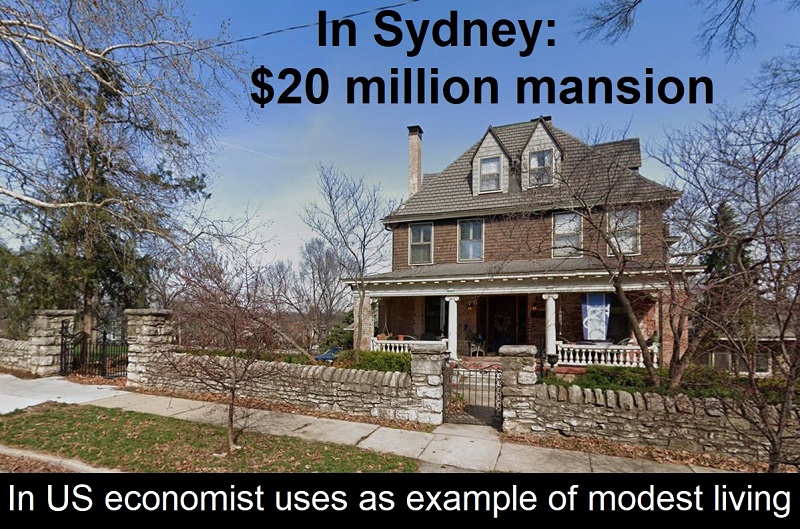
Texas provides a great example of how not to treat electricity consumers during a heatwave.
Last week Texas suffered through a stinking hot heatwave.
And just like the polar vortex five months ago, we saw an excellent example of villainous electricity retailer behaviour we must never allow in Australia.
In January when Texans were freezing to death, some people were signed up to electricity plans without realising they were committing to paying wholesale electricity prices. In the middle of a blizzard, these rose to over AUD $11 per kilowatt-hour. Some households received electricity bills for thousands of US dollars in one month. I wrote about this mess here.
We have electricity plans that expose households to wholesale prices in Australia, but they come with a safety feature protecting homes from unexpectedly huge power bills. The Texan plans didn’t have any such safety measure.
The retailers’ behaviour in the heatwave isn’t as bad. No one’s being put in a dangerous situation or receiving ridiculously high electricity bills. Instead, the problem is people are having their air conditioner thermostat increased remotely during a heatwave. The news reports exaggerate the discomfort that resulted.
In the video, Texans complain the temperature inside reached 78 degrees. This sounds horrific, but in the primitive English dialect Americans use, 78 degrees actually means 26 degrees.
It would be easy for me to make fun of Texans complaining about the temperature reaching 26°C when it has gone over 46°C here in Adelaide1, so I will:

Silly Texans.
On the other hand, Texans probably think we’re complete idiots because of our habit of always forgetting the Alamo.
The problem is not that air conditioners are adjusted remotely. It’s a useful way of reducing strain on the grid and helping lower electricity costs. The system even seems pretty intelligent as it can pre-cool the home before the thermostat is turned up. The problems are:
- Not all who signed up knew what they were getting into. Some say they unenrolled but were still affected.
- The electricity retailers and the company making the remote adjustment are financially benefiting while the households with their electricity use reduced get bugger all.

Never forget how Texans fought for the freedom to create a slave state.
Big Savings For Electricity Retailers
It’s now common for new air conditioners sold in the United States to come with remote thermostat adjustment. They have installed over 40 million of them. The idea — which isn’t a terrible one — is grid operators can reduce air conditioner electricity consumption when the grid is under stress. Cranking up air conditioner temperatures remotely in the middle of a heatwave isn’t something people appreciate, but it has the potential to save households a lot of money. Unfortunately Texan households are getting almost nothing in return.
The main company involved in remotely controlling Texans’ air conditioner thermostats in the US is called Energyhub. If you join their program you permit them to increase your air conditioner thermostat by 2.2°C remotely. That’s 4 degrees Fahrenheit in crazy 18th century style American units.2 That’s not a lot and no one is likely to die from heatstroke as a result. Still, it is enough to stop electricity consumption by an air conditioner for a period of time and — in most circumstances — reduce the energy consumed when it turns back on. The amount of time this adjustment lasts is normally 1-4 hours, but can be longer if the situation is regarded as an emergency.
Americans have large homes. Well, not all Americans, but the ones we see on TV do.
How much energy will be saved by remotely cranking an air conditioner’s thermostat up by 2.2 degrees will depend on the external temperature, the thermostat’s original setting, the size and efficiency of the air conditioner, and the home’s thermal envelope.
Because the average Texan home uses around 13,350 kilowatt-hours a year — more than twice the Australian average — my guess is their average air conditioner is pretty large. A typical remote thermostat adjustment may reduce electricity consumption by over 2 kilowatt-hours. Normally, 2 kilowatt-hours would cost a Texas household around 34 Australian cents. But during a period of high demand, the cost of wholesale electricity to a retailer can go over $11 Australian per kilowatt-hour. So, one adjustment might save the electricity retailer more than $22 in wholesale electricity costs while saving the household only 34 cents.
The US Energyhub company says:
“We estimate there will be two to eight adjustment events from June 1st through September 30, 2021.”
But they also say there could be more than 8 adjustments in an emergency. I don’t know what they consider an emergency, but I’m guessing their recent heatwave counts as one.
If we assume there are 5 adjustments and each saves the retailer an average of $20, then from June to September remote adjustment would save the retailer $100 in wholesale electricity costs.
If the system was in any way fair, you might expect the household would have their power bill reduced by close to this amount. But that’s not what happens.

Maybe Texans wouldn’t feel the heat so much if they stopped sticking their heads inside dead possums.
US Energyhub “Lose Control Of Your Air Conditioner” Sweepstakes
Texas households don’t get money in return for relinquishing control over their thermostats. Instead, they get a tiny chance to win money in the…
“ENERGYHUB: WIN $5,000 PROMOTION”
I know this sounds like a joke, but here’s a page with the details. If you were a literal-minded person, you might think a “WIN $5,000 PROMOTION” would have a prize of $5,000 US but it’s not the way it works in the United States, which is the land of car autopilots that require you to pay attention to the road at all times.
Instead of receiving $5,000, the prize is to have one year of electricity bills paid up to a maximum of $5,000. At the moment the average Texas residential electricity bill is around $1,700 US.

I’m no expert on North American zoology, but I think the Texan on the right has shoved her head inside a dead skunk.
Only One Winner
There will only be one winner in the whole of Texas for the year. If we assume 5,000 households take part then giving up control of your air conditioner, after adjusting for your chance of winning, will have an expected average return of $1. If your electricity consumption is average it will only be 34 cents.
There are 29 million people in Texas, so for all I know, the number could be over one million. If there are 100,000 entrants, the expected return for an average household would be 1.7 cents. If there are a million, it would be 0.17 cents.
It’s A Con Job
You might be wondering why anyone would give up control of their air conditioner to a third party for a return that may average under two cents. I’m pretty sure the answer is most didn’t. My guess is most thought they were taking part in a simple contest without any real downside. Not many Australians relinquish control of their air conditioner in return for a ticket to a really shitty lottery, and I’d expect the average Texan to be even more resistant.

Average Texan. (Artist’s impression.)
But no matter what Texans thought they were getting into, to me it seems blatantly unfair households get next to nothing when they’re the ones making the (mild) sacrifice, and the companies involved are the ones reaping all the financial benefit. Maybe some or most of the cost savings will be passed on to consumers in the form of lower prices in the future, but I have some doubts that will happen. Even assuming it does, those who have their thermostats adjusted won’t receive any more reward than others.
Not Suitable For Australia
Remote control of air conditioners already occurs in Australia, mostly in large commercial and industrial buildings, as part of our Wholesale Demand Response Mechanism. But remote adjustment or demand management of residential air conditioners is coming with several trials underway or complete.
I don’t know enough about what’s planned in Australia to judge whether or not it will be fair, but obviously, we don’t want a Texas-style situation where people are conned out of control of their air conditioners in return for entry into some two-bit, two-cent, contest. I expect something better than that for Australians.


 RSS - Posts
RSS - Posts



I was under the impression that remote control of Australian AC already was already a reality for some. The difference is where Texas merely changes the temperature by a few degrees, Australia completely switches off the AC. Sure you’ve got an AC unit, doesn’t mean to you’re allowed to use it you peon!
Can’t find what I was looking for but their ABC has a 2019 article saying Horizon Power are trialling it. From what I recall remote switch off for AC has been around for a while, but perhaps I’m misremembering?
AGL asked customers in NSW to sign up to reducing consumption for one or two hours during a predicted heat event. I agreed and turned off the pool filter for two hrs. Received $10 off bill. Mild summer so there was only one event in my area. Was not done remotely.
AGL also do it in Vic, my targets have all been meant only things I did was not schedule loads during the times, I was not home during most so it was mainly dependent on the clouds. (solar)
I think we have had three of these events.
LOL Our AC is on 27C (with moving air) and misters on the very odd occasion it is used in Summer
Texas
Big Hats
Big Trucks
Big Houses
Big Air Conditioners
Big Energy Bills
Meh
I used to work at Ergon Energy 20 years ago. We’d (very infrequently) switch off customers on A/C tariff by using ripple control. Interestingly, this happened in the middle of the night once and someone called the call centre to complain…not because of the heat but because it was too quiet as they were used to the white noise of the air-conditioning running all the time!
I would like you to imagine that someone woke you in the middle of the night. Then I would like you to imagine they kept you awake for two hours. I can’t imagine, myself that you would be too happy!
I enjoy the white noise of my aircon and make other arrangements during colder months. One of my family uses the white noise of a fan and simply cannot make other arrangements. I wouldn’t be laughing at them?
Smart texans will be running their thermostats on 66F so they can get 70F
Even smarter Texans put solar panels on the house.
Would a smart Texan get solar? Unless your system is set to run off-grid, blackouts take out solar. And while you’d think Texas a good place for solar, it’s not as good as the likes of California or Arizona. The south-west corner below New Mexico aside, most of the state is only about on par with other southern states.
Despite the challenge it looks like Texas is the 2nd largest producer of solar power after California, but with solar farms mostly in counties towards the New Mexico border. Since the population tends to be in the east, perhaps they don’t see the value in private generation? I’ve seen 2017 figures saying only 57,000 homes in Texas were solar powered, but it’s only in the last couple of years that production in the state has spiked so perhaps new household figures will be higher?
It’s becoming more accessible to have a solar system that can continue running when the grid goes down. The upcoming Enphase microinverters will be able to do this, even if no backup battery is present. Even without such inverters, the addition of say a Tesla Powerwall 2+ will provide an isolated ‘grid’ that will allow the ‘dumb’ inverter to think that the grid is still there.
Blackouts are not the reason to put solar on the roof. On a hot, sunny day, a large array will be feeding power into the grid even while the air conditioner is running, and the power bill will be lower.
Generally, if you want power in a blackout you need a backup generator or a battery. If enough people install rooftop solar, it could make summer blackouts and power price spikes due to air conditioning load less likely.
I guess the benefit to the consumer is the grid doesn’t crash and turn everything off. Kind of like variable speed limits on major roads.
Also like how in Sth Aust they are now requiring new solar PV systems to have remote control capability to help out in times of grid stress.
I agree. We have had brown outs in Victoria before (and presumably other states), and if I had to choose between not having any power or turning off/down my air conditioner, I know what I would choose!
Couple of points:
Presumably the remote control, if implemented across Australia, wouldn’t use the internet. Too flaky here!
Surely if the A/C control is turned up a few degrees, that would save the consumer some $$ in electricity charges?
When I was in Japan a few years ago, the Japanese Government had a plan that all office, shopping malls, Government buildings had their A/C controls set to 28 degrees (Celcius) in Summer.
They encouraged all the popuation to do the same. Most did.
It was a bit hard working in an office at 28 degrees, but you do get used to it. They had a slogan: “28 is great!”, which was plastered all over the place and advertised on radio and TV.
Clothing shops joined in by selling suitable business clothing for both men and women. Large clothing retail shops had a special section for this attire called “The Cool Biz” section.
https://www.env.go.jp/en/focus/jeq/issue/vol03/feature.html
Spare a thought for residents in areas in Oregon and Washington states, USA and British Columbia province, Canada.
Temperatures in Lytton, BC (latitude 50° 13′ 52” N) reached +47.0 °C (116.6 °F) on 28 Jun 2021 at 2:53pm, and topped +46.6 °C (115.9 °F) in the previous day.
https://twitter.com/ScottDuncanWX/status/1409636012028882950
It is officially hot enough to fry an egg outside in Vancouver, British Columbia.
https://twitter.com/ScottDuncanWX/status/1409542217379811330
Rogue Valley International – Medford Airport, Oregon (latitude 42° 22′ 27″ N) reached 112 °F (+44.4 °C) on 27 Jun 2021, and has climbed further to 115 °F at 3:53pm on the following day.
https://twitter.com/NWSPortland/status/1409647531009593346
Washington state is also likely to break max temperature records.
Note that air conditioners in Oregon and Washington states, and British Columbia are not common. That may change.
It got even hotter in Lytton on Jun 29, 2021, nearly 50 C. Then on Jun 30 about 90% of the buildings burned to the ground.
Ironically, the town is right beside the Fraser river, known for its white water rafting. The cause was suspected to be a passing freight train, as the fire started in that area, but hasn’t been determined.